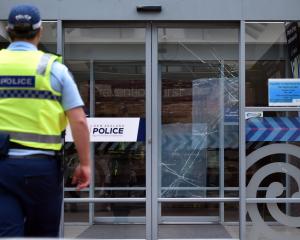
Yesterday, Health Minister David Clark announced the independent review, and apologised for a botch up with a pilot screening programme in Waitemata DHB, where some people did not receive an invitation for free bowel cancer screening.
One of them subsequently died from bowel cancer, and two others contracted cancer.
The review will be done in parallel with the introduction of the national screening programme, and is not expected to affect its timing.
Southern DHB is the next to launch the programme and is expected to begin offering screening by the end of April.
BCNZ welcomed the review and wanted greater clarity about what went wrong at Waitemata, executive member Sarah Derrett said.
''Screening has the potential to save 500-700 lives a year and BCNZ has been calling for the introduction of screening programme since 2010 ...
''We lose 1200 New Zealanders every year to this cancer and most of the DHBs don't even have the beginnings of a screening programme in place.
''We need to move with some profound urgency towards a national roll-out,'' Prof Derrett said
During the pilot programme an issue with updating addresses was discovered, and about 2500 people did not receive screening invitations. Addresses have now been manually updated in the national screening register by cross-referencing to the National Health Index, and officials are now checking all address records for errors.
''The Ministry of Health has taken full responsibility for this matter. As Minister of Health I also apologise unreservedly,'' Dr Clark said.
''According to the ministry's clinical advice it was not possible to say whether the outcomes for any of the three people would have been different if they had received invitations, but their cancers might have been detected earlier if they had chosen to be screened.''
The terms of reference are still being worked on.
''There will be some consultation before they are finalised.
''I believe a decision on who the review reports to will be considered as part of that,'' a spokesman for Dr Clark said.
''The head of the review has not been named yet, but work is under way on that.''
The review is expected to be completed by June.
The screening programme has been plagued with issues, and last December Dr Clark delayed implementation in some areas by up to a year, largely because DHBs were unable to cope with the additional work.
SDHB clinical lead for the programme Jason Hill said he was not expecting any change to the intended start in the South.
The programme will be available free to more than 51,000 residents aged 60-74 years of age.
''It is estimated that approximately 86 cases of cancer will be detected in our district during the first two years of the programme, many of which will be in the early stages, when bowel cancer can often be successfully treated,'' Dr Hill said.
Prof Derrett said plans were for the last DHBs to enter the screening programme by the end of 2021, and that it took two years to contact all eligible people in a DHB area.
''That means we are still a good five years away from seeing everyone in the eligible age group accessing screening,'' she said.
''We absolutely can't afford to start all over again.
''Let's fix it, move on, and put a very clear plan in place for all the DHBs to have a screening programme.''












